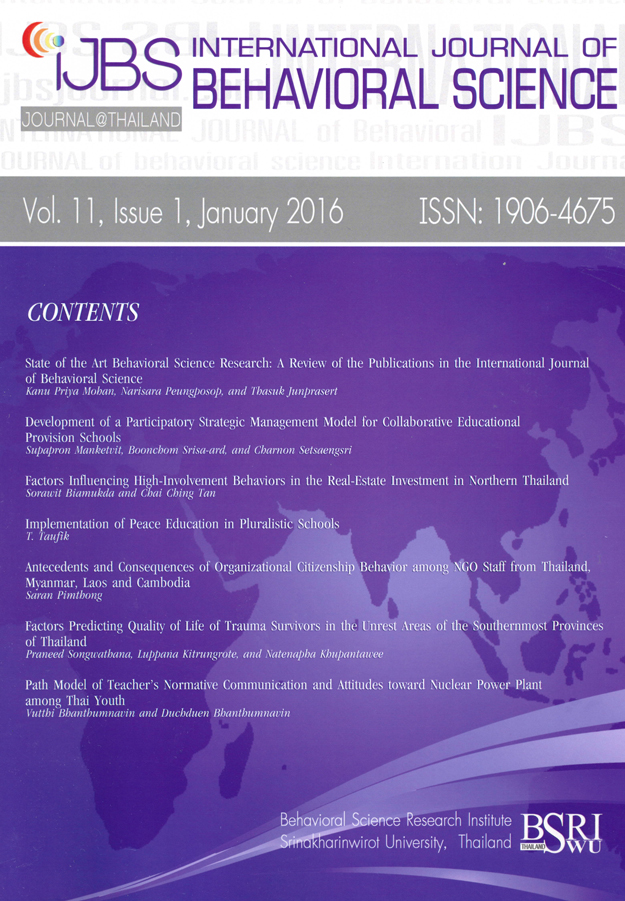Path Model of Teacher’s Normative Communication and Attitudes toward Nuclear Power Plant among Thai Youth
Main Article Content
Abstract
This study aimed at investigating the relationships among perceived teacher’s normative communication, media exposure, and knowledge on the three components of attitudes toward nuclear power plant (NPP) in 638 high school students. The findings indicated that teacher’s normative communication was the most important factor, compared to the other two factors, namely NPP knowledge and media exposure. Results from Structural Equation Modeling (SEM) indicated that the direct effect of teacher’s norm communication was found toward trust in the government, and all three aspects of NPP attitude, namely, cognitive aspect, affective aspect, and intention aspect. Moreover, affective aspect, cognitive aspect, and teacher’s normative communication could explain 74.0% of the variance of the NPP intention aspect. Applications for teachers in schools to increase the acceptance of NPP in young generation, and suggestions for future study were discussed. discussed.
Downloads
Download data is not yet available.
Article Details
How to Cite
Bhanthumnavin, V., & Bhanthumnavin, D. (2016). Path Model of Teacher’s Normative Communication and Attitudes toward Nuclear Power Plant among Thai Youth. The Journal of Behavioral Science, 11(1), 77–85. https://doi.org/10.14456/ijbs.2016.7
Section
Research Articles


